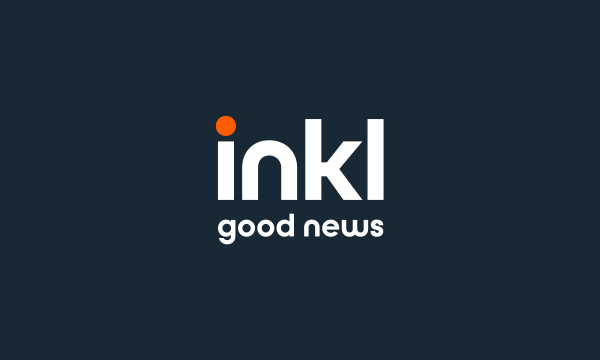Blockchain and AI are no longer competitors, but are joining forces.
Their alliance forms what experts call the data economy — a new model in which value is created not just by products or stocks, but by information itself.
We spoke to a global cryptocurrency expert about how AI and blockchain technology are turning data into a new asset class – and why trust has become the main currency of the digital economy.
Denys Yakushev is one of the leading representatives of a new generation of cryptocurrency analysts working at the intersection of technology, finance and human behavior. He is an international blockchain market analyst, digital asset consultant, and digital ecosystem researcher.

– Until recently, blockchain technology and artificial intelligence were developing in different directions. What has changed?
– This is correct. Until 2023, these technologies developed in parallel. AI has been used primarily for data analysis – for example, in sales forecasting, image recognition, process automation, and customer database management. Blockchain technology, on the other hand, is designed to protect, store, and verify information.
It is quite clear today that they work more effectively together. AI helps extract meaning from information. It learns from data, identifies patterns, and makes predictions. Blockchain technology makes this process transparent, as it records where the data came from, who collected it, how it was used, and who modified it. The first turns information into knowledge; The second ensures that this knowledge can be verified and used without intermediaries.
– People now often say that data has become a new form of capital. What does this mean practically for companies?
Companies have begun to view data not as a set of numbers or statistics for reporting, but as an economic asset – something that can be valued, sold, or used for investment.
For example, an organization can encode – i.e. convert – market reports, research results, or customer analyzes into digital assets and provide paid access via subscription.
Investors, in turn, can invest in these assets just as they would in stocks, and earn profits from their use by other companies.
This is how the new data market is taking shape, where information is traded like capital.
So companies are now making money not just from products, but from the data itself?
– Exactly – and this is one of the biggest transformations in recent years.
There are entire data marketplaces — platforms like Ocean Protocol, SingularityNET, Fetch.ai, and Cortex AI — that allow companies to exchange data, sell computing power, and even trade trained AI models.
This market expanded rapidly in 2024 when these platforms started to gain institutional support.
Large companies such as NVIDIA, IBM, Microsoft, and Google have begun investing in AI and blockchain integration – primarily to verify data sources and combat fake content generated by neural networks.
– Why has trust become the central value in the digital economy?
Trust is the new form of liquidity. Companies that users and partners trust gain access to data, investments, and collaboration faster than those with an opaque reputation.
You can only trust AI when you can trust the data it relies on, and blockchain technology has become the foundation of that trust. Verifies data origins, validity, and usage history.
When an investor sees that a company’s data is verified, unchanged, and secure, he views it as a trusted asset.
Thus, trust becomes not just a moral concept, but rather a financial indicator of stability.
– So we are witnessing the birth of a market where data is a new form of money?
– Accurately. concept Data as capital It is now being discussed not only among startups but also by major analytical institutions. It has been examined in detail in reports from the World Economic Forum, MIT, CoinDesk, PricewaterhouseCoopers, and Deloitte.
The basic idea is that data can be valued, tokenized, and used as collateral for transactions, investments, and loans.
In the past, a company’s assets were buildings or equipment; Today they are training models, databases, algorithms, and intellectual products. This is what’s new Knowledge economyWhere information takes over the role previously occupied by capital.
-What about the risks? If the data is capital, it can also be lost or stolen.
– This is the main challenge of this new era. As everything becomes digital – from money to behavioral models – the line between information and ownership is blurring. Companies must therefore think not only about profit, but also about ethics: where the boundaries lie between data use and privacy violation. Blockchain technology partly addresses this problem by creating a transparent record of all actions – showing who accessed data, when, and why. But the culture of handling data responsibly is something companies are still learning.
– How do you see this trend developing?
-We are entering an era in which artificial intelligence and blockchain technology are becoming business infrastructure. AI creates value – it analyses, predicts and improves. Blockchain technology ensures trust, transparency and accountability. If Web3 gave us digital ownership, AI gave it meaning. Together they are working to build an economy in which capital is not measured by money but by knowledge.
A new type of investor is emerging – Data investorwhich invests not in stocks or currencies, but in information and computing power. This is already happening. The only question is: who will be the first to seize the opportunity?
– What do you advise companies that want to enter this new economy?
– First – start by auditing the data. Understand what you have, where it is stored, and how to use it. Second: Ensuring security and transparency. Data is the new asset and deserves the same protection as finances. Blockchain technology helps record data assets and track their use. Third – look for partners. There is no need to build everything from scratch – the market already offers AI platforms, blockchain services and consulting solutions. Most importantly, understand that technology integration is not a quarterly project but a long-term strategy.
And finally – think not only about profit, but also about value.
In the new economy, success does not belong to those who collect the most data, but to those who can transform it into knowledge and trust.




